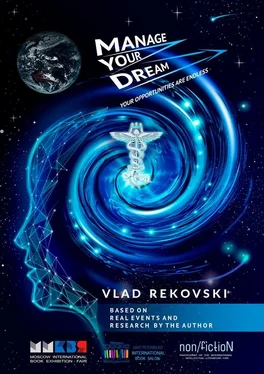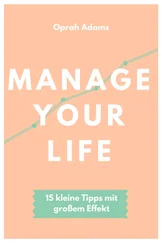1 ...8 9 10 12 13 14 ...19 Father’s illness began to progress
My father had a very rare disease, the source of which has already been precisely established. It is caused by microorganisms that enter the human body when eating fresh wild berries or as a result of direct contact with wild animals. The most dangerous of all animals in this regard are foxes.
These microorganisms settle mainly in the lungs and liver of a person and begin to multiply there gradually. A person infected with such microorganisms at the first stage, sometimes lasting for years, does not feel anything until the number of microorganisms begins to manifest itself in mild shortness of breath and a slight (up to 37 degrees) increase in body temperature. At this stage, the lungs and liver cease to fully perform their functions, and the person begins to feel it.
Until now, it has not been possible to find a remedy that could completely cure a person from these microorganisms. Modern medicine has not yet developed such a drug. The existing German medicine allows only to stop the growth process of pathogens and reduce their activity, which leads to an improvement in the condition of an infected person. In 1995, my father spent several months in Hamburg, in a special clinic for tropical diseases, in which there were only four such patients from Germany.
And then, in 1993, the Ministry of Health of the USSR (Russia) stopped buying this medication in Europe, and the released Russian analogue, after a week from the beginning of its intake, began to have very strong and severe side effects on my father’s body. Our family at that moment had to decide where to get German-made medicines for my father. We found an opportunity to buy it in Germany. The cost of the course for a month was about eight hundred US dollars, and the drug had to be taken constantly throughout the rest of my life. So fate has set a new task for us: how to cope with all this?
It was not easy for us at all. But we all: me, my mother, my brother and my father came to this decision together, weighing all the “pros” and “cons”. Only one major factor was for me personally: my father’s health! There was no other way.
Chapter 2. First step into the unknown world…
Making an important decision
We decided to leave to live in Germany. At that moment, my mother’s three sisters lived there.
But what did it mean for me to leave everything and go to live in Germany, another country with a different way of life, different customs? But what about German, which I did not know? What about all this? I had to leave my startup business, my friends, my habits and go into a world still incomprehensible to myself! THIS were my FEARS at that moment, which I needed to cope with.
I thought that there should also be advantages in this situation, and began to list them: I am young at my twenty-four years old and, if necessary, I can get another or additional education in Germany, which will open up NEW, unknown opportunities for me.
I thought that for this I need to first learn the language, which will give me some advantages for my future. But that was not all. That time was very turbulent in Russia, my business involved serious risks, my safety was not guaranteed by anything. And it was not clear what Russia would be like in five or six years. My brother Dmitry, who was a year and a half younger than me, he worked in various places and earned very modest income, he had dubious friends and abused alcohol. I thought about him and worried about him. Departure from Russia should only benefit him.
And my father, to my proposal to leave for him with his mother alone, to Germany, replied that he would not go to Germany without me and my brother, and my mother supported him.
So, the decision was made, and we started the process of paperwork for the exit. Earlier in the family we did not speak at all about the fact that we have relatives abroad. Mom’s older sister went abroad in the seventies. She and her mother rarely corresponded, since in the USSR, living behind the “Iron Curtain”, it was dangerous to have relatives abroad. This could have far-reaching consequences – such a fact could significantly limit the choice of profession, career growth, self-realization as a leader.
But by that time, in 1993, all three of my mother’s sisters had already lived in Germany. My mother was German by birth, she was from those Germans who moved to the Volga region at the invitation of Tsarina Catherine II in the 16th century from Schlesia, the eastern part of Germany. Today these lands are part of Poland.
Russian Germans. Generational history
Immigrants from Germany during the time of Catherine II received land and could engage in agriculture. As a result, whole German villages with German schools, beautiful houses and good roads were formed in four hundred years. The inhabitants of such villages spoke only German, and this was their own little world for them. When we were about to move to Germany, we did not know that such villages existed in southern Russia.
Before the revolution, my ancestors owned a large farm, which in 1917 was taken away and passed into the possession of Soviet collective farms, and my great-grandfather named Rekovsky was shot by the Bolsheviks. But this was not the end of the ordeal for the Rekovsky family, as well as for many other Volga region Germans. 1941 came, the Great Patriotic War with fascist Germany began. At night, the entire village was surrounded by special services, and an order was given to evacuate the entire population. People could only take with them documents, which were later seized by the NKVD, and some clothes and food. All were put into a cargo train at the nearest station and taken to, but where – it is not known. These frightened people did not know how long they would take them and what awaited them ahead. And they faced difficult trials ahead: complete poverty, death of relatives from hunger or from work in the Gulag and “labor camps”.
The echelon reached its destination in about a week, it was the city of Novosibirsk. The people were put into trucks and taken to the forest about fifty kilometers from the city. There was no housing at all, and people were offered to dig dugouts. Yes, that’s exactly how – to dig dugouts and settle down, whoever can. (Further – from the words of my mother’s sister, aunt Mina.) The Rekovskys family had five children at that time, my mother was born after the war, in 1947. Just imagine: as soon as the family settled down, my grandfather Alexander Rekovsky (born on July 21, 1909) was taken into the labor army, grandmother Ekaterina (born on March 9, 1911) was also taken into the labor army, and a little later, three months later, the children were left alone. The older sister Mina, who was twelve at the time, took full responsibility for the younger sisters. The sisters were between two and six years old. Mina went from door to door, begged, got food and warm clothes, wandered through the garbage dumps, collected what could still be used for food, and, if possible, worked as a nanny. The two youngest sisters could not overcome the hardships of hunger and died one after another during the first year after moving to Novosibirsk.
Time passed and the situation got worse. Mina found out the address of the camp where her father worked and wrote him the following letter: “ Our beloved daddy, we live in our last breath. Our two little sisters starved to death three months ago, and now it’s our turn. Come to us as soon as possible, otherwise we may not wait for you! Your daughter Mina”.
When my grandfather received this letter, only one person could help him in this situation. This was one of the camp officers with the rank of captain. After the main working day, the grandfather helped the family of this officer, who lived on the territory of the labor camp, – he prepared firewood for them. In the evening, grandfather brought firewood to their house and stoked the stove. And so, he once again fired up the stove and handed this letter to the officer’s wife with words of help and asked to give him the opportunity to go to Novosibirsk to bring his children. It was unlikely, but he nevertheless hoped very much: he had no other opportunity to get out of the camp, even for a couple of days.
Читать дальше







![Theresa Cheung - The Dream Dictionary from A to Z [Revised edition] - The Ultimate A–Z to Interpret the Secrets of Your Dreams](/books/692092/theresa-cheung-the-dream-dictionary-from-a-to-z-r-thumb.webp)




